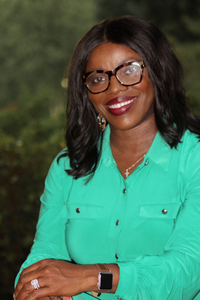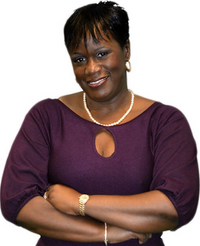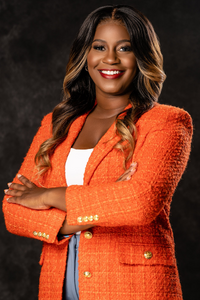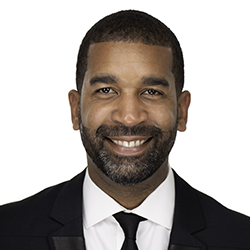Pleasanton, CA — In 1926, land at Broadway and Wall Street sold for a record-breaking $7 per square-inch, and Black-owned real estate firms accounted for a sliver of total American entrepreneurship.
But pride in Black business ownership was alive, and blossoming, laying the foundation for the conversations we get to have as a company today.
Interest in an official Black History Month first started to build steam in 1920s America. University of Chicago alumnus Carter G. Woodson harnessed that momentum and founded the Association for the Study of Negro Life and History (ASNLH). In February 1926, Woodson and the ASNLH announced the first Black History Week.
Conversations around Black achievement ebbed and flowed over the following decades, eventually surging again in the 1960s.
In 1969, Black educators and students at Kent State University set aside February for reflection and education around Black historical achievements. Six years later, colleges across the country were celebrating Black History Month, prompting President Gerald Ford to officially recognize Black History Month during the nation’s Bicentennial Celebration.
As this formal recognition of Black achievement rolls into its second century, NextHome is proud of the conversations going on inside our company and the courage of so many of our owners to lead this conversation alongside us. We will not always get it right, but doing something is certainly better than doing nothing.
The conversations that started in 1926 laid the foundation for us to have better conversations around race today, but we still have a long ways to go.

A month of increased focus on Black achievement should never be relegated to tokenism. Examples of African-American success have made an impact on many of our Broker/Owners that ripples through their communities. Our diverse owners strengthen NextHome as a company through their success and perspective.
“Growing up in rural South Carolina, there were very few Black successful business owners to watch and model after,” said Rhonda Rivers, owner of NextHome Rivers Realty in Charlotte, North Carolina. “However, there was one Black female REALTOR® in Florence, South Carolina that was visible and very active in the market. As a teenager, I would anxiously grab the Sunday paper every week to look for her ads and see her beautiful professional headshots, which was a weekly reminder that if she could do it, I could do it too.”

More than 800 miles away, Delores Facey, owner of NextHome Unlimited Realty Solutions in Hyde Park, Massachusetts, also understands first-hand the power of Black role models.
“I feel by modeling Black business owners you are supporting and encouraging the progression of Black business ownership,” Delores said. “It’s important to our economy and our community to celebrate, recognize, encourage, and support Black-owned businesses and their endeavors. I’ve come to believe that Black entrepreneurs often sell themselves short because they have little self worth or confidence. This is often due to them not having access to the proper resources, mentoring and/or training so they tell themselves they can’t make it or they won’t be successful. By modeling Black business ownership you send a different message of ‘you can succeed, you can thrive because others are doing it.’”
In Texas, NextHome Broker/Owner Chantell Hypolite remembers the heartbreaking stories her Black grandparents told about their path to homeownership.

“My grandparents were first generation homeowners, and they stressed the importance of homeownership to me at a young age,” Chantell said. “However, they also shared horror stories with me about their path to homeownership: lenders making them provide the same documentation over and over, lack of homes in minority neighborhoods, or just telling them they couldn’t do something without providing an explanation. Ultimately overwhelmed with the tediousness of the process, they purchased land and built a home without taking out a loan. This led to a lack of trust in my family lineage to banks and REALTORS®. Even my own parents were victims of a failed contract and loss of earnest money due to lack of education in purchasing a home. I decided then that I wanted to help more people that looked like me own a home because I truly believe we all can obtain homeownership.”
Today, Chantell is the proud owner of NextHome Executives in Houston.
“For so long, we haven’t seen Black and Brown business owners, so the idea of ownership in the minority community is still relatively new and shocking,” Chantell said. “The more ownership that we see, the more it becomes the norm and the catalyst for the next generation of entrepreneurs.”
Growing up, Ken Fox remembers Sunday drives with his mom, looking at all the beautiful new construction homes he knew would never be theirs. His experiences around minority homeownership helped nudge Ken towards a career in real estate, and he now owns NextHome Modern in Austin, Texas.

“Fast forward through 30 years of experience in various facets of the real estate industry and I can attest to the fact that there is a lower percentage of minorities in any aspect of the real estate industry,” Ken said. “Modeling Black businesses is important because the exposure of a minority business owner can spark courage in someone who might find them more relatable in life’s obstacles and journeys. Showing examples of successful Black-owned businesses is especially empowering and relatable to all cultures/races given the history and journey. It helps everyone know that if they can make it, I sure can try.”
Today, these conversations and examples are more crucial than ever. African-Americans made up just 7 percent of all real estate brokers and agents in the United States according to the 2021 National Association of REALTORS® Member Profile.
“As a company, we understand the importance of diversity and inclusion,” said Imran Poladi, NextHome’s Vice President. “Each decision we make comes with the thorough process of having our company represented by a diverse group of agents, brokers, associates and their clients. It’s extremely important to NextHome for our company to showcase not just our company’s diversity, but the diversity our clients represent as well.”
There are so many reasons why diversity in real estate is important, from representation to improving access for aspiring minority homeowners and building wealth for every generation after. But one of the greatest benefits is the conversation we get to have.
Conversations around race can be uncomfortable. They should be uncomfortable. It is only as we sit with that discomfort that we build the emotional capacity to hear diverse points of view.
“Being intentional about your support of Black-owned real estate businesses within NextHome starts with communicating and having those awkward conversations,” Delores said. “This includes encouraging ongoing dialogue amongst NextHome offices, agents, and leadership and establishing a clear set of goals that address systemic barriers for Black business owners, from supportive policies to representative leadership.”
Rhonda added that NextHome already does many things to help Black business owners thrive, but we are also happy that we get to continue our conversation and move forward.
“NextHome does an amazing job at providing the most current trends in real estate and finance,” Rhonda said. “This positions me to be a better informed business owner and provides me with the knowledge to empower my team and our sphere of influence. I would greatly appreciate it if NextHome can continue to support Black business owners like myself by providing seats at the table in some of our mainstream committees that may not have representation within our large group settings.”
“Our decisions as an organization are guided by a single phrase, Humans Over Houses,” said NextHome CEO James Dwiggins. “When you focus on the human aspect of every new product you introduce, every home bought or sold, every new member who joins your organization, you end up creating a progressive company that reflects the makeup of the communities you serve.”
“We’re incredibly grateful to our African-American franchise owners and brokers for continuing to engage in deep conversations with us and for helping us build a company that we all can be proud of,” said Dwiggins.